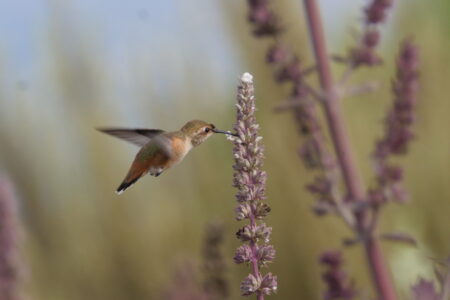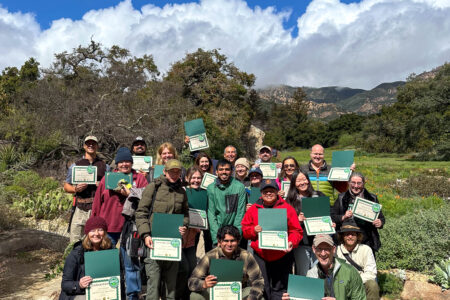13th Annual Santa Barbara Botanic Garden Conservation Symposium
- Instructor
- Santa Barbara Botanic Garden
- Location
- Santa Barbara City College - BC Forum (West Campus) & ONLINE!
- Date
- January 31, 2026
- Time
- 10:00AM - 1:00PM
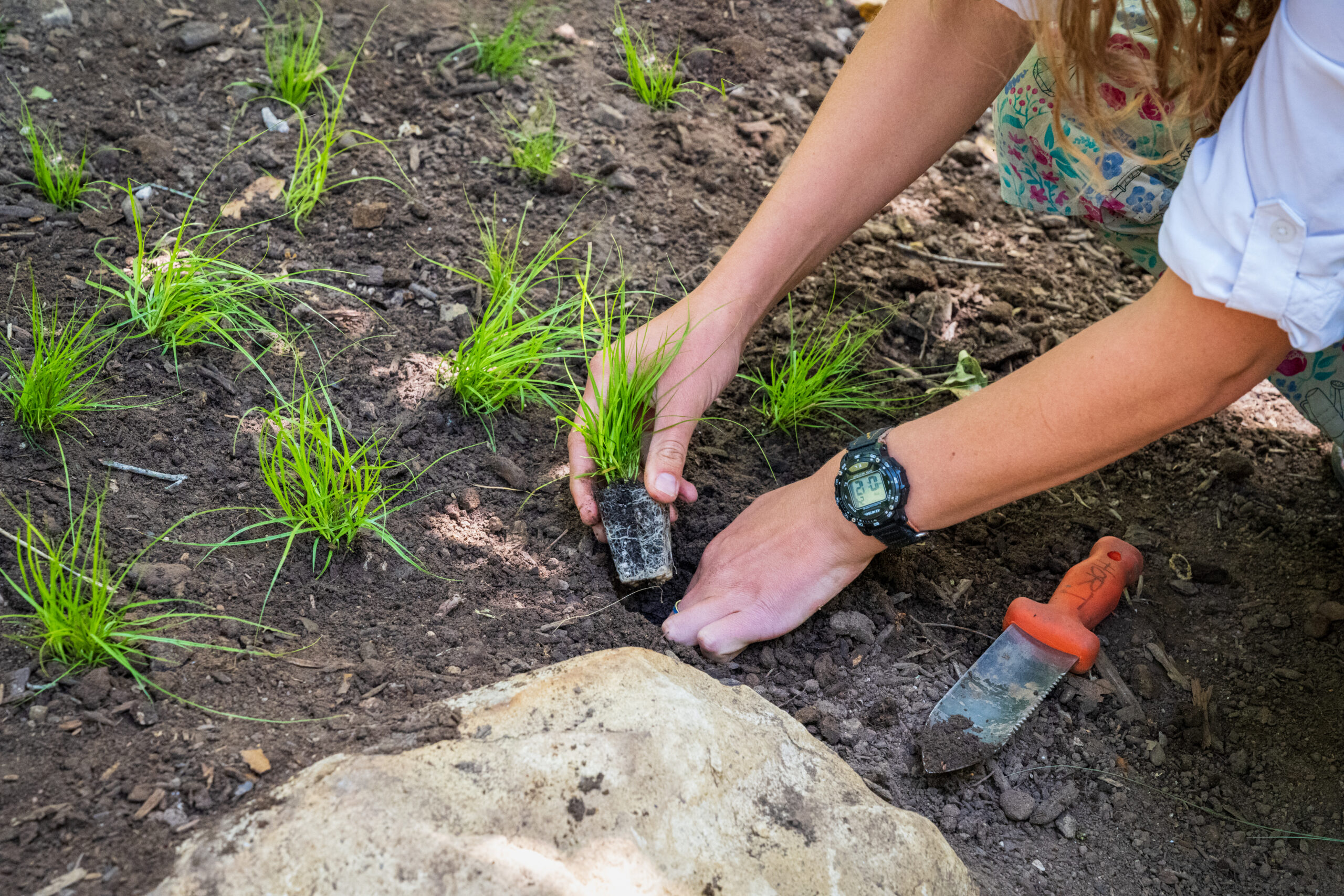
Explore more topics
Plant With Purpose: Growing Resilience Through Native Plants
Presented by the Nakashima-Rennie Family
With the launch of its centennial year, Santa Barbara Botanic Garden is proud to lead its 13th annual Conservation Symposium presented by the Nakashima-Rennie family and guided by one unifying theme: Planting With Purpose. As the Garden celebrates 100 years of native plant leadership, research, and advocacy, this year’s event examines how our public and private landscapes can be reimagined, so they are both beautiful and beneficial — supporting our own well-being, strengthening our community, and sustaining the natural world we depend on.
As a part of the celebration, this year’s event honors renowned entomologist and best-selling author Doug Tallamy with the 2026 Honorable John C. Pritzlaff Conservation Award. Known for the books “Nature’s Best Hope” and “Bringing Nature Home,” Doug has become one of the most compelling voices in native plant conservation. In his keynote, he will address the urgent realities of global insect declines and the loss of three billion birds in North America — stark reminders that our current approach to growth and development is failing, and nonnative plants commonly used for landscaping do not sustain the biodiversity we all need to thrive. However, Doug also reminds us that there is hope. He’ll share the simple yet powerful steps each of us can take to reverse these trends, explaining how choosing the right plants can simultaneously address the biodiversity and climate crises, and why shifting from an adversarial relationship with nature to a collaborative one is essential.
You’ll also hear from the Garden’s Conservation Department about its pioneering work to research and protect native plants across the West Coast, Channel Islands, and beyond. From understanding the nuances of biodiversity and safeguarding rare native plant species to developing strategies that strengthen ecological resilience, the Garden is actively working to ensure biodiversity thrives from our backyards to the backcountry.
Finally, you’ll learn how you can make a difference right at home. Whether planting a native garden or joining community initiatives, you can help harness the power of native plants to transform the spaces where we live, work, and play — boosting biodiversity, strengthening climate resilience, and improving the health and well-being of our community and our planet.
This is more than a symposium — it’s a call to action. Join us.
Tickets (now available):
General Admission: $40
General Admission – Student: $15
Virtual Attendee: Free (Registration required).
In-person attendance includes complimentary breakfast pastries, coffee, and snacks. Please bring a reusable mug with lid.
Please note, in-person tickets to our Symposium have sold out; however, you can still join us virtually.
Event Details:
Date: January 31, 2026
Time: 10 a.m. to 1 p.m.
Location: Santa Barbara City College, BC Forum (West Campus) & YouTube Livestream
Schedule of Events:
| 10 –10:15 AM | Welcome and Introduction Steve Windhager, Ph.D., Executive Director, Santa Barbara Botanic Garden |
| 10:15-11:15 AM | Doug Tallamy, Ph.D., T.A. Baker Professor of Agriculture, University of Delaware & New York Times Best Selling Author | 2026 Pritzlaff Conservation Award Winner Nature’s Best Hope | Recent headlines about global insect declines and three billion fewer birds in North America are a bleak reality check about how ineffective our current landscape designs have been at sustaining the plants and animals that sustain us. Such losses are not an option if we wish to continue our current standard of living on Planet Earth. The good news is that none of this is inevitable. Choosing the right plants for our landscapes will not only address the biodiversity crisis but help fight our climate crisis as well. Tallamy will discuss simple steps that each of us can- and must- take to reverse declining biodiversity, why we must change our adversarial relationship with nature to a collaborative one, and why we, ourselves, are nature’s best hope. |
| 11:20-11:40 AM | Heather Schneider, Ph.D., Director of Conservation & Research, Santa Barbara Botanic Garden Biodiversity for All: Growing the Native Plant Movement | The idea of a global biodiversity crisis can feel overwhelming – how can individuals possibly make change on such a grand scale? The good news is that we don’t have to. By harnessing the power of native plants in the places where we live, work, and play, we can all be part of the solution. Santa Barbara Botanic Garden is working from the ground up to support biodiversity through science-based landscape transformations at Elings Park and in the Cuyama Valley, helping folks find the right plant for their yard and matching them with experts who can install them, and advocating for programs and policies that support native plants and all the critters that rely on them. We’re here to help you find your path to biodiversity stewardship. Whether you want to get your hands dirty putting plants in the ground or pulling weeds, help spread the word with your friends and neighbors or help affect change at the policy level, there’s a place for you in the native plant movement. |
| 11:40 AM to 12 PM | Zachary Phillips, Ph.D., Terrestrial Invertebrate Conservation Ecologist, Santa Barbara Botanic Garden From the Ground Up: The Natural History of a Plant Community Transformation | At Elings Park in Santa Barbara, California, ecologists, students, and community volunteers are working together to transform an acre of weedy, nonnative grassland into a thriving patch of coastal sage scrub — one of California’s most imperiled habitats. The project serves as a testing ground for two weed management methods — tarping and sheet mulching — to compare their effectiveness in suppressing invasive plants and supporting native recovery. It also offers an opportunity to study how key native plants support insect pollinator and bird communities. Beyond its research goals, the site has become a centerpiece of natural history education for the public and future generations of naturalists. |
| 12-12:20 PM | Alejandro Lemus, Horticultural Educator, Santa Barbara Botanic Garden Growing Resilience: How Habitat Gardening Can Help Wildlife and Communities | In the face of a changing climate, habitat loss, and destructive wildfires, we have the power to help our plant and animal cousins. By harnessing the potential of our front yards, container gardens, and hellstrips — the narrow spaces between sidewalks and street curbs — we can create vital habitat that supports the web of life and strengthens our communities. Everyone can take part in environmental conservation through habitat gardening. Join us and leave empowered to participate in and help grow the native plant movement. |
| 12:20-12:30 PM | BREAK |
| 12:30-1 PM | Panel Discussion moderated by Helene Schneider From Niche to Neighborhood: Expanding the Native Plant Movement | This panel explores how the native plant movement is expanding beyond specialized gardens to transform entire communities. Panelists include homeowner Hugh Ranson, Elings Park Executive Director Dean Noble, and professor and best-selling author Doug Tallamy. The discussion highlights how different settings and landscapes throughout a community can be used to achieve the shared goal of enhancing biodiversity. It also explores collaborative efforts that are turning private yards, public spaces, and community landscapes into thriving habitats for people and wildlife alike. |
Thank you to our generous sponsors:
Presenting –

Cultivate Change –
Blackbird Architects | Christian and Melissa Stepien | COX
Media Partner –

To keep up with the latest Garden announcements subscribe to our newsletter at the bottom of this page and follow us on social media @SBBotanicGarden
Scroll for Speaker & Panelist Bios
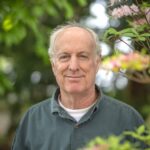
Doug Tallamy, T.A. Baker Professor of Agriculture, University of Delaware & New York Times Best Selling Author
Our 2026 John C. Pritzlaff Conservation Awardee, Doug Tallamy, is the T. A. Baker Professor of Agriculture in the Department of Entomology and Wildlife Ecology at the University of Delaware. He has authored 115 research publications and has taught insect-related courses for 45 years. Chief among his research goals is to better understand the many ways insects interact with plants and how such interactions determine the diversity of animal communities. His books include Bringing Nature Home, The Living Landscape, co-authored with Rick Darke, Nature’s Best Hope, a New York Times Best Seller, The Nature of Oaks, winner of the American Horticultural Society’s 2022 book award, and his latest book How Can I Help. In 2021 he cofounded Homegrown National Park with Michelle Alfandari (HomegrownNationalPark.org). His awards include recognition from The Garden Writer’s Association, Audubon, The National Wildlife Federation, Allegheny College, Ecoforesters, The Garden Club of America, The Herb Society, and The American Horticultural Association.
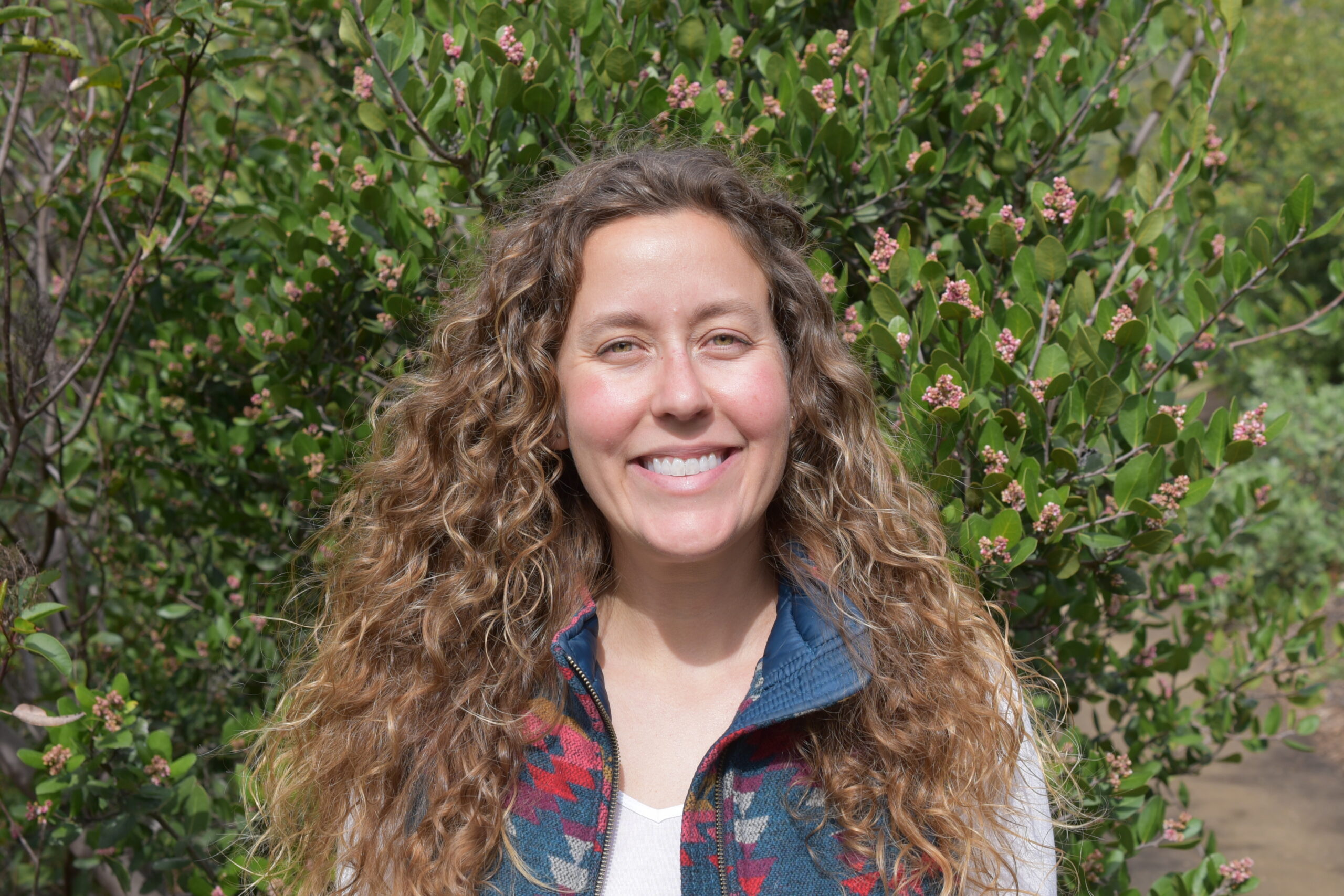
Heather Schneider, Ph.D., Director of Conservation & Research, Santa Barbara Botanic Garden
Heather Schneider, Ph.D., is the Director of Conservation and Research at Santa Barbara Botanic Garden. For nearly 10 years, she led the rare plant conservation program at the Garden, focusing on research and recovery actions for California’s rare plants. In her new role as Director, Heather now oversees a team of more than 20 scientists who are working from the level of genes to ecosystems to further native plant conservation across California. Using applied science as a foundation, Heather and her team conduct cutting edge research, field work, nursery propagation, and community outreach to understand, protect and restore California’s native plants and habitats. She also oversees the Garden’s Conservation Seed Bank, which safeguards more than 4M seeds representing more than 400 kinds of rare plants. Heather earned her PhD in botany and plant sciences from the University of California, Riverside. Prior to joining the Garden, she worked for the US Geological Survey as an Ecologist and was a postdoctoral scholar at the University of California, Santa Barbara, where she helped create the first-ever research seed bank to study the evolution of wild plants. .
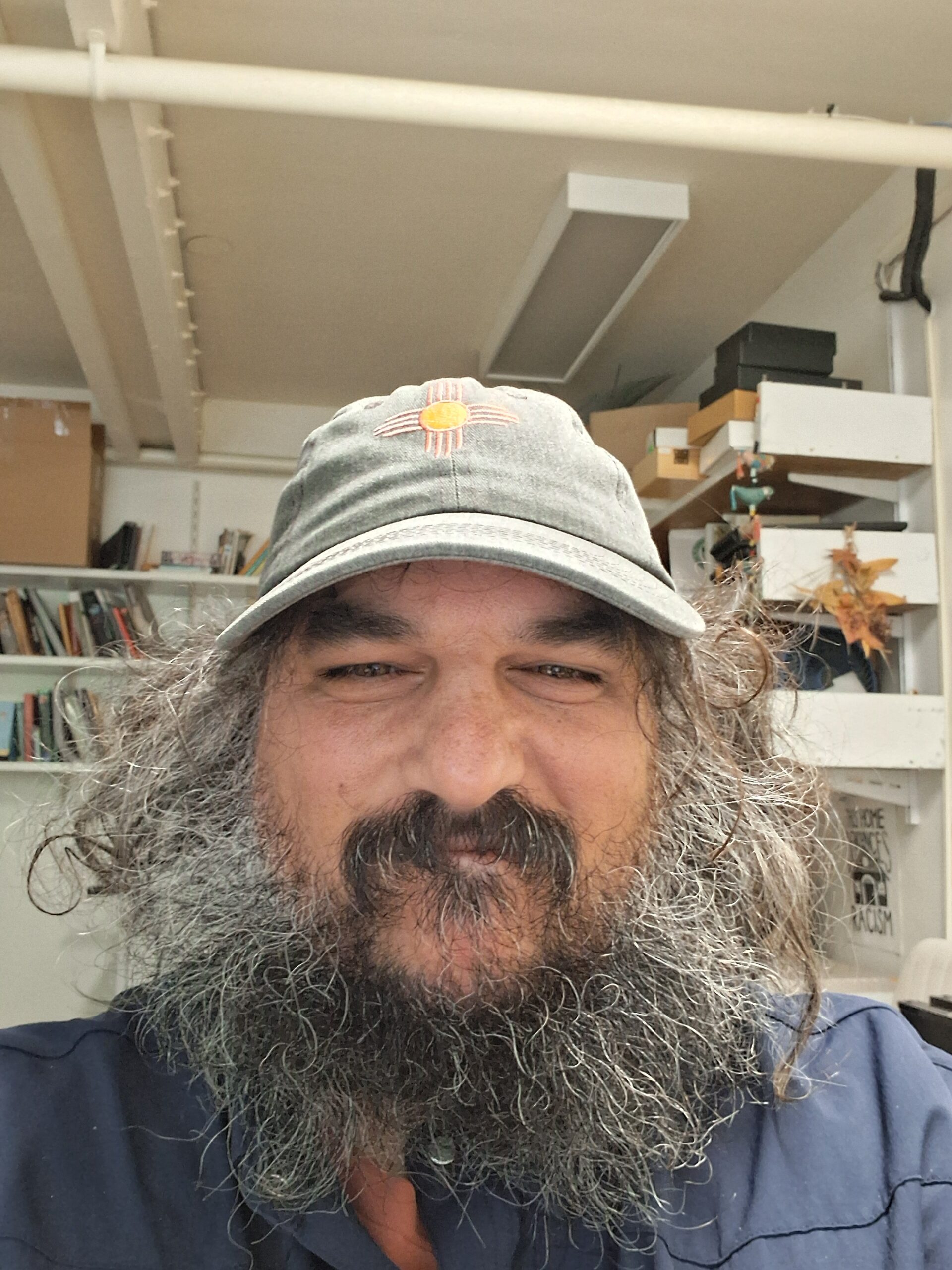
Zach Phillips, Ph.D. Terrestrial Invertebrate Conservation Ecologist, Santa Barbara Botanic Garden
Zach Phillips, Ph.D., is an ecologist, entomologist, and naturalist. As an invertebrate ecologist for Santa Barbara Botanic Garden, he studies invertebrate ecology and diversity in California, from the Channel Islands to residential backyards. He explores invertebrate communities associated with plants and those hidden in plain sight, including communities of insects and spiders that live in dead wood, bird nests, beach wrack, and ant colonies. Zach received his bachelor’s degree in zoology from University of California, Santa Barbara, and his doctorate in integrative biology from University of Texas at Austin, where his research focused on symbionts of ant colonies (“myrmecophiles”), including a miniature cockroach that lives with leaf-cutter ants, Attaphila fungicola, and an invasive ant-mimicking spider that feeds on ant heads, Falconina gracilis.
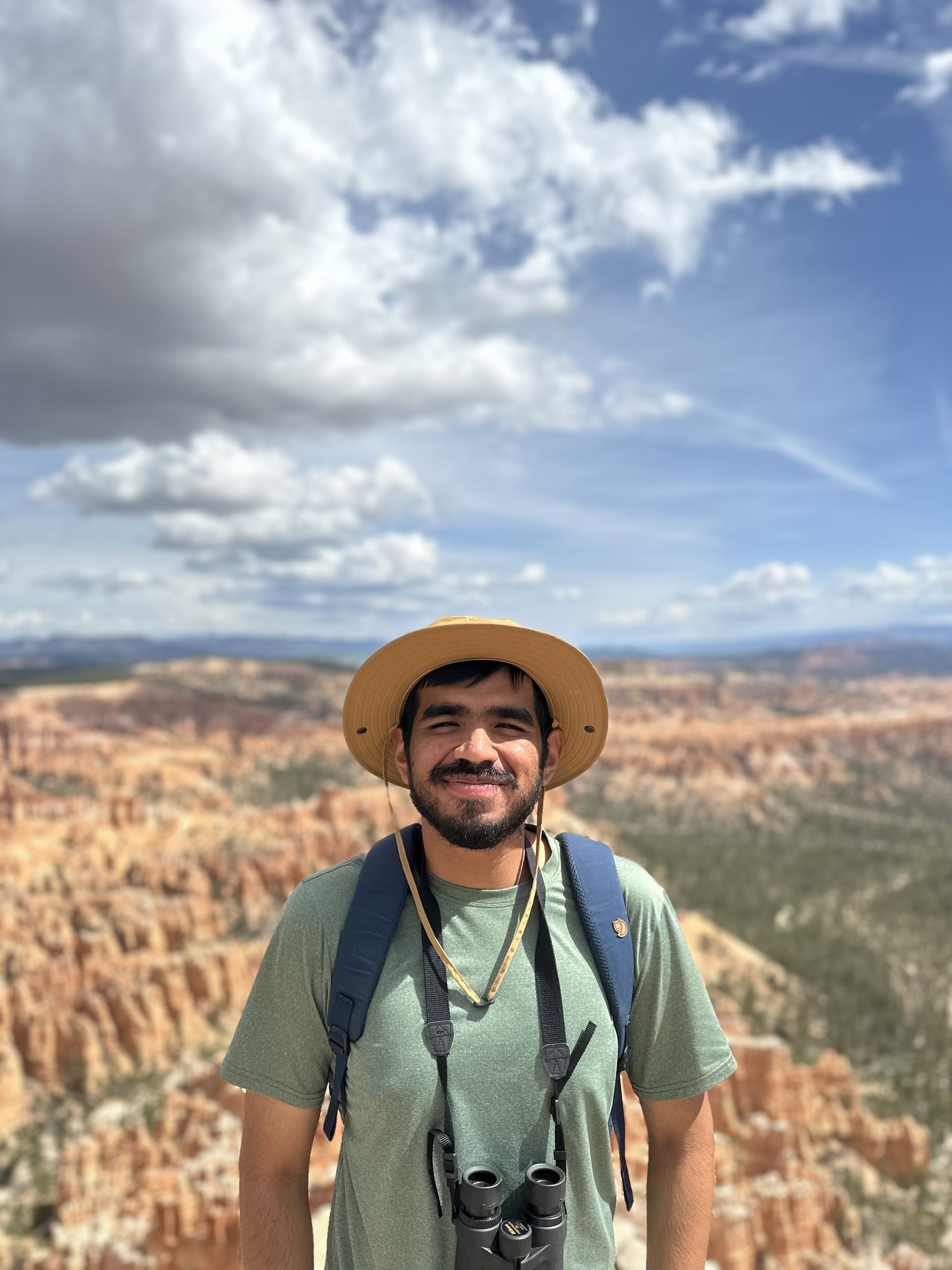
Alejandro Lemus, Horticultural Educator, Santa Barbara Botanic Garden
As the Garden’s horticultural educator, Alejandro develops and implements horticultural education programs for residential gardeners and professional landscapers. Born and raised in Los Angeles, he has fond memories of helping his family with their landscaping business. Gardening has instilled Alejandro’s appreciation and curiosity for the natural world, whether pulling weeds or stumbling upon new insect friends.
Alejandro graduated from the University of California, Los Angeles with a bachelor’s degree in biology with a focus in ecology and evolutionary biology. He has worked for land trusts, nature centers, and native plant nurseries, advocating California native plants. Alejandro comes to the Garden with experience in habitat restoration, landscaping, native plant nursery management, propagation, and education.
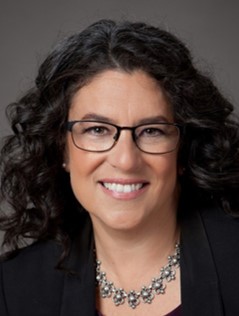
Helene Schneider, Board Chair, Santa Barbara Botanic Garden
Helene Schneider’s passion stems from connecting with leaders on complex policy issues to create positive results. She currently serves as the regional development director for California State University Channel Islands (CSUCI), expanding awareness and support of CSUCI in Santa Barbara County. She also works as a regional coordinator for the U.S. Interagency Council on Homelessness, focusing on reducing homelessness in communities throughout California and Arizona.
Helene served for over 17 years in municipal government, as mayor, city councilmember, and housing authority commissioner for the City of Santa Barbara. Additionally, in her previous role as a human resources management consultant, she developed and conducted various effective training programs for local businesses focusing on strategic planning, team building, and sexual harassment prevention. In addition to the Garden, she also serves on the Santa Barbara Arts Collaborative board.
Helene earned a certificate in executive leadership from Harvard Kennedy School of Government and a bachelor’s degree from Skidmore College. She loves beach walks, singing it out, and “Buffy the Vampire Slayer” — and believes that a good year requires a passport.
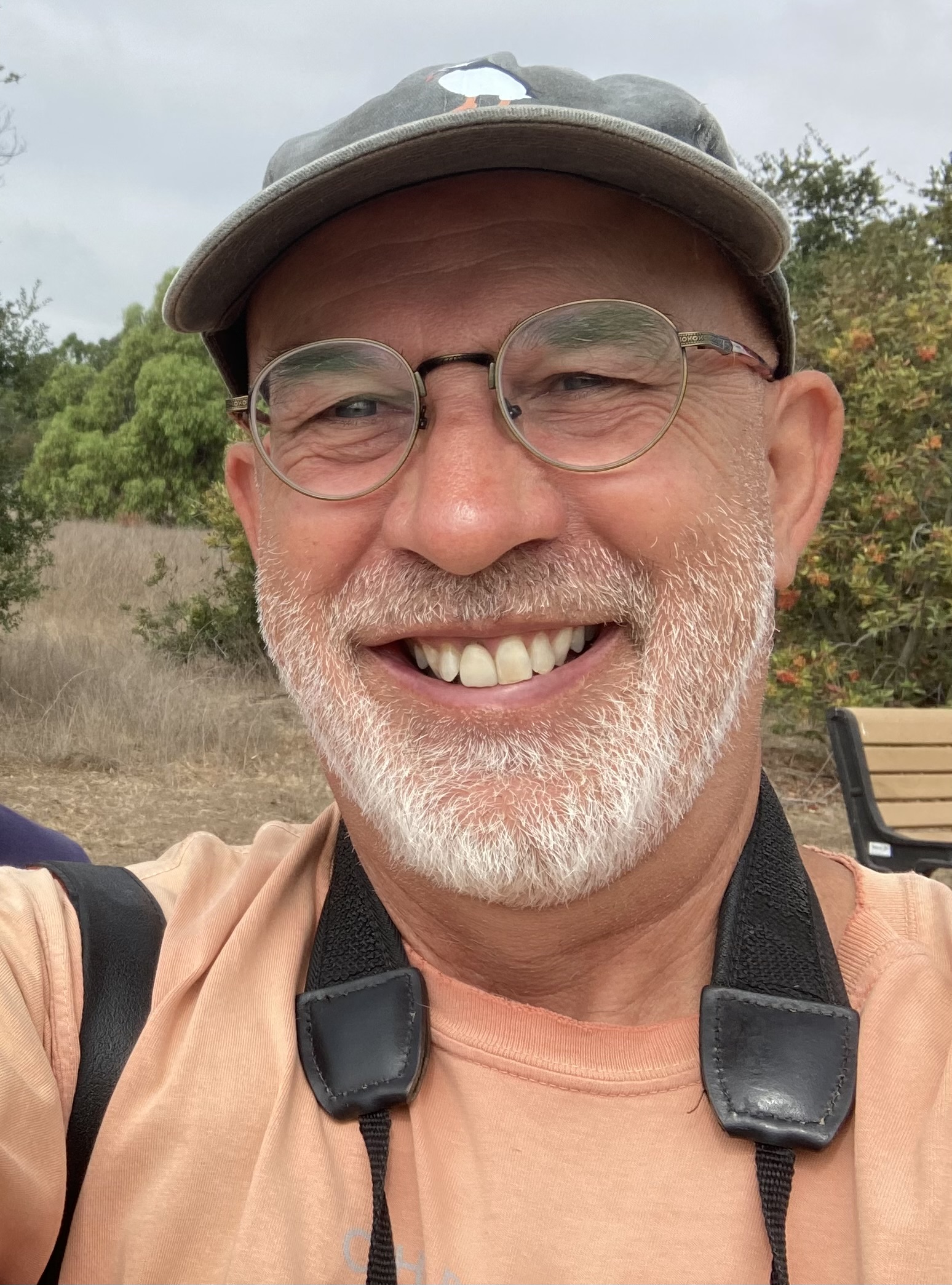
Hugh Ranson, Home Gardener
A lifelong birder, Hugh Ranson’s love of wildlife gradually expanded to include dragonflies, butterflies, and ultimately the native plants that sustain them. Three years ago, he led an effort to transform a common area in his condo complex into a native plant garden. Since then, he’s witnessed an incredible response from local insects and arachnids, discovering something new almost every day.
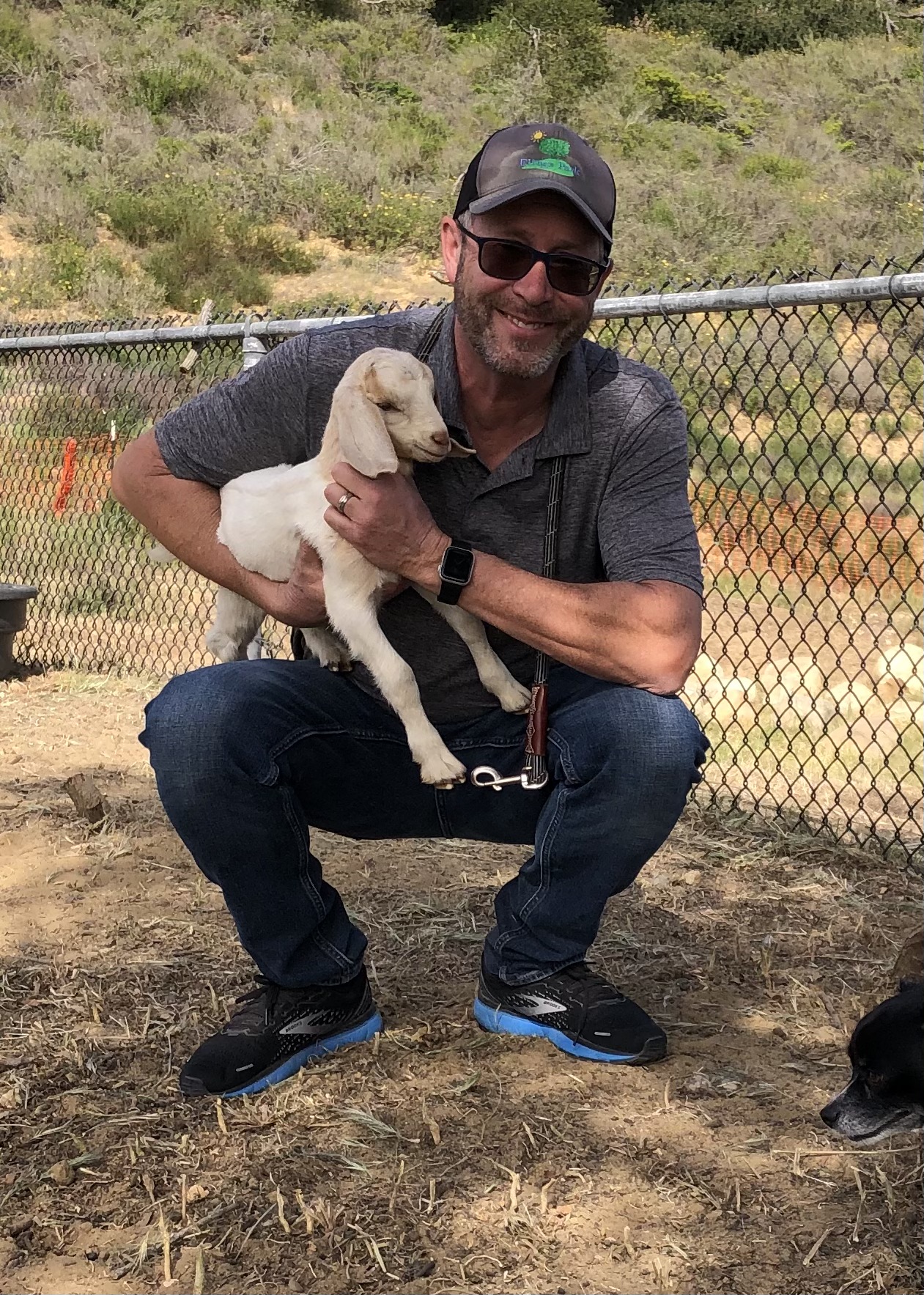
Dean Noble, Executive Director, Elings Park
Dean Noble is the Executive Director of Elings Park in Santa Barbara. A Honolulu native, his marketing and management resume includes Universal Studios Japan in Osaka, the beautiful Santa Barbara Zoo, feature film development for ITC Entertainment in Los Angeles and representing an extensive roster of deceased celebrities at the Roger Richman Agency in Beverly Hills.
Refund Policy:
We require at least 72 hours’ notice for cancellations. Refunds will be issued to the original form of payment, minus a 15% processing fee. Cancellations made within 72 hours of the class start time are nonrefundable and cannot be rescheduled.
 Donate
Donate